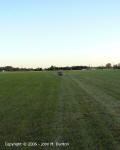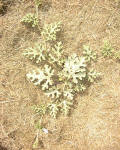|
|
Welcome to Dunton
Family Farms
|
|
Mulching [ Fall Composting ] [ In Place Composting ] |
|
We use lawn clippings, hay, straw, or compost for our garden beds and bark dust for our flower beds in the more formal landscaped areas. While composting converts plant matter into a soil amendment, we mulch throughout the growing season to create a protective barrier around plants that:
At the same time, a thick layer of mulch keeps weeds from germinating and those that do, are typically weak and easily removed. Since the risk of soil splashing onto the plant from rain or during the process of watering, disease problems are reduce. For sprawling plants like squash, melons, and even tomatoes, mulching helps to reduce rot that fruits often get where they come into contact with the soil. We start applying mulch in the late spring after the soil has warmed up. At the end of the growing season, any mulch that has not broken down is removed during our fall garden cleanup and use in our compost piles. Interesting Links:
|


